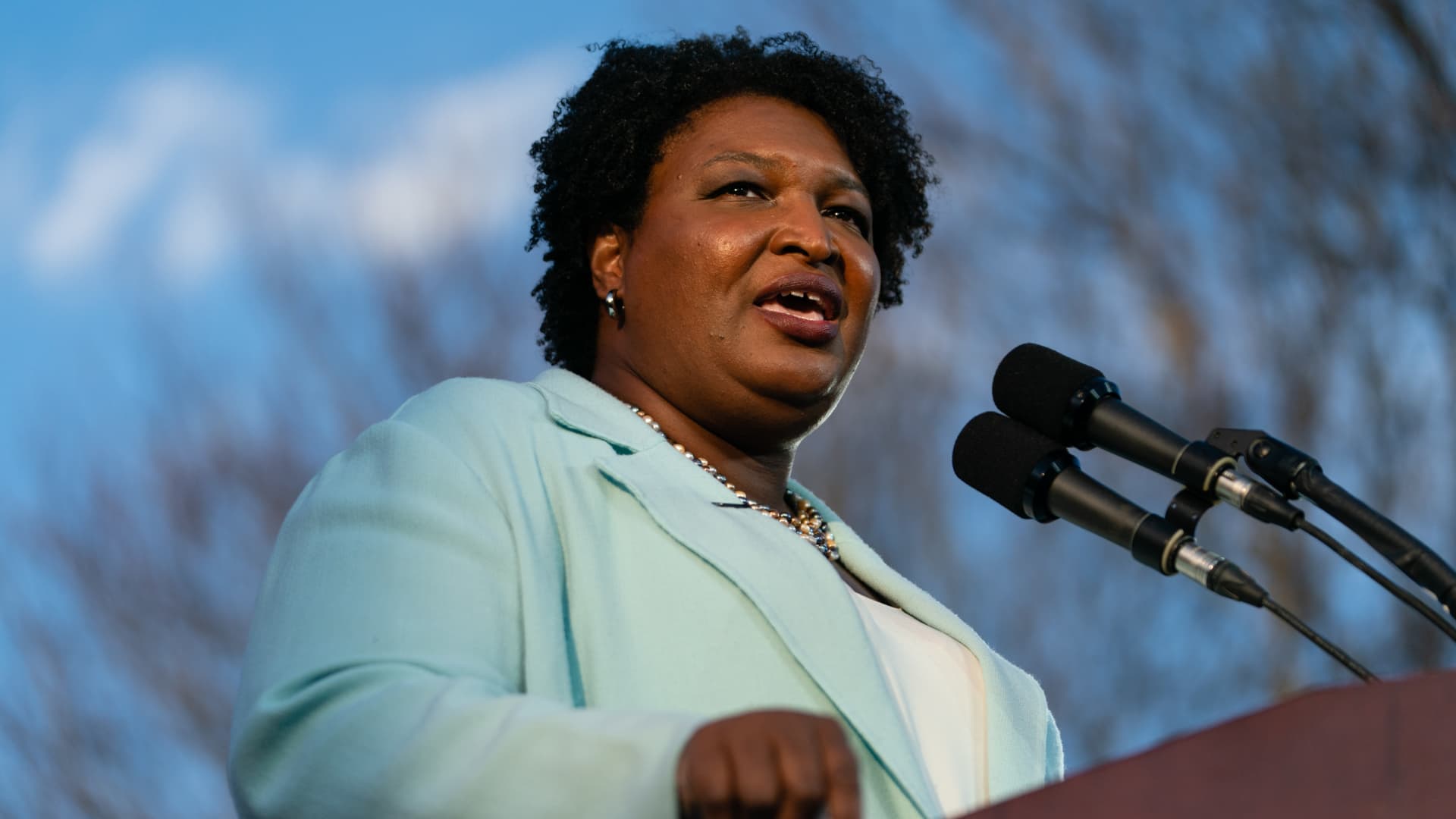Stacey Abrams on why companies shouldn't always speak out on political issues

Stacy Abrams, the Democratic candidate for governor of Georgia, speaks on Monday, April 14.
Elia modernity | Mayor of Bloomberg | fake photos
Companies are under intense pressure to speak out on a variety of political issues at the local, state, and national levels. Whether it's police action in one city, Disney in Florida, or the potential string of calls for a stronger corporate response to the bombing around Roe v. Wade, the current era is one in which business leaders are expected to take a stand, or potentially face worse consequences if they remain silent.
Perhaps no influential voice in the Democratic Party of a country that has played a more prominent role in the political and corporate failures of Stacey Abrams, the current board member of Georgia's governor. But Abrams says it's a mistake to assume that companies should talk about all political issues.
"Performance value means nothing to me," Abrams said Thursday at CNBC's Small Business Playbook virtual event. "They shouldn't be measures of performance, because you think that's what people want from you."
Abrams is a small business owner and explained during a CNBC event that she is a "capitalist."
"We have to make money," he said.
But it's important to remember, especially for small businesses, added Abrams, "We are born citizens, and we are not separate from what we are when we open the doors."
It also means accepting that customers come with their whole selves when they walk through doors, and any decision to talk about politics is a decision to show yourself fully to those customers.
“We need to be really selective about how much we are willing to enforce our belief systems,” Abrams said. "But some things are very basic to us, and so are we," he added.
For the 1.1 million small business owners in his state, Georgia, he said, making decisions about where to take a stand on political issues means preparing for business loss, even if it becomes a different form of earned value.
In every major movement in this country's history, from civil rights to women's rights to LGBT rights, corporations have had to stand up. But the answer doesn't always have to be a thoughtful "yes," nor should it be based solely on looking at dollars and cents.
"The decision has to be made because you can't stick to your moral compass, and you can't respect your moral core," Abrams said.
Co-founder Lara Hodgson, the more politically conservative Abrams co-author of the latest book "Level Up," said some companies were intentionally built as part of their DNA. Their latest joint venture, now, which offers small business account payment solutions to small business owners, caters to a wide range of customers, employees and investors. Hodgson and Abrams need to make sure they stay true to the foundation on which the company is built, to help small business owners struggling for money.
When a company, like yours, changes after a failed attempt to create the next "global liquor giant" under the Nourish brand, with Hodgson describing his efforts to create a better range of leak-free drinks for kids, it's important to remember that the point does not represent an overall change in direction, but An essential position in which to look for a new opportunity. For Abrams and Hodgson, this DNA may contain certain beliefs, but from a market opportunity perspective, it has led to the small business financing problem. "Don't use the store to go out and talk about other things," Hodgson said. "We are very focused on leveling the playing field for small businesses."
The two often differ and have different strengths and weaknesses. Abrams, who spearheaded one of the most successful voter registration campaigns in modern history and is credited with bringing Georgia's most important election to the Democratic Party, says he shines with numbers that many businessmen (and lawmakers) don't understand.
“We are very different, and we are not best friends,” Abrams said. “It gives us space to be incredibly honest and not be in each other’s lives every minute of the day. If you get up and work and go to bed and talk to the same person, it will cloud your mind and create an echo chamber.”
When they disagree, Hodgson said, they are curious first and then critical.
"When someone shares their point of view, rather than judging what piques our curiosity, we ask ourselves what we can learn from it," he said.
And in the midst of controversies, sharing an unwavering sense of impact and consequence will overcome any given point of friction. “99.9% of the target, we agree with the outcome and how we are going to achieve it varies a lot, but as long as the focus is on outcome and impact, the different approaches are incredibly positive,” Hodgson said.